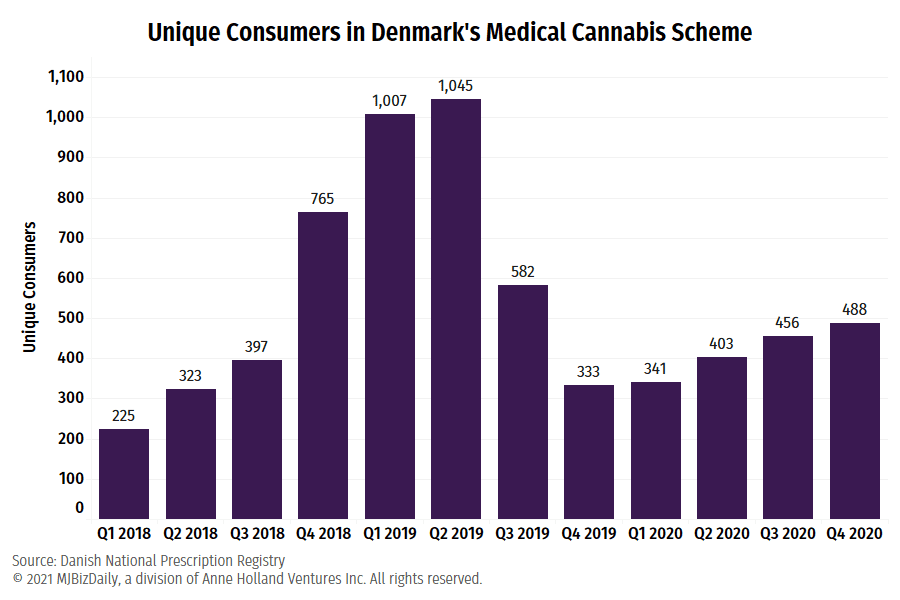Canadian cannabis producer Hexo Corp. struck a definitive deal to buy one of the leading adult-use producers in the country by market share in a cash and stock deal worth 925 million Canadian dollars ($766.4 million).
The deal to acquire Redecan, announced early Friday, would vault Hexo into the No. 1 position in Canada’s recreational cannabis market after it closes, the Ottawa-headquartered company said, surpassing rival producers Canopy Growth and Tilray.
Hexo has been on an M&A tear this year, spending CA$1.2 billion buying competing licensed producers.
The deals include:
- CA$925 million for Redecan.
- CA$235 million for British Columbia-based Zenabis Global.
- CA$50 million for Ontario’s 48North Cannabis
Earlier this month, Hexo entered purchase and sale agreements for a 50,000-square-foot cannabis production facility in northern Colorado, marking a step forward for the Canadian producer’s U.S. ambitions. Terms of the deal weren’t disclosed.
The Redecan purchase includes CA$400 million in cash on closing of the deal and CA$525 million in Hexo common shares.
The string of deals mark a dramatic turnaround for a company that only a year ago had run afoul of the New York Stock Exchange’s continued listing standards because of a low stock price.
Matt Bottomley, an analyst with Canaccord Genuity Corp. in Toronto, flagged a potential risk involved with integrating the three latest deals in Canada.
“Although we believe the ability to secure lasting long-term adult-use market share will eventually separate the winners and losers in the space,” the analyst wrote in a note to clients, “with a flurry of recent M&A announced by HEXO we believe investors should keep a watchful eye on integration efforts subsequent to closing and the company’s ability to maintain and grow its historical penetration levels throughout Canada.”
In an interview with MJBizDaily, CEO and co-founder Sebastien St. Louis said Hexo isn’t trying to buy everything under the sun.
“There’s a number of things we don’t do,” he said by phone. “We’re not buying retail. I’m not trying to buy an MSO (multistate operator). We’re not going heavy into buying medical patients in Canada. We’re not attacking those markets.
“From that perspective, do I need to buy more in Canada? No. I think we have the portfolio and the strengths to now go and keep that No. 1 (market share position) and grow it organically,” he said.
However, the CEO said Hexo is not necessarily done buying.
“If there are more great brands that have that combination of market share, accretive margins or great IP (intellectual property), I’m going to keep my eye out for those,” he said.
Speaking of competitors’ seemingly random acquisitions over the years, St. Louis said that’s not what Hexo does.
“They weren’t even buying companies in their same industry,” he said.
“They didn’t know what they wanted to be. They bought greenhouse manufacturers at one point. ‘Like guys, what are you doing? You don’t understand your business.’
“We’re a cannabis products company, so anything I’m going to buy is going to be a cannabis products company.
Redecan on the rise
Redecan was one of the most successful cannabis producers in Canada in 2020, growing its market share while many others were in retreat.
Redecan’s share of the adult-use marijuana market increased from 5.1% in the beginning of 2020 to 6.9% in the first quarter of this year, according to data compiled by ATB Capital Markets, an investment banking and financial services firm, and digital retail platform Hifyre.
Hexo was another big winner in 2020, doubling its share of the overall market from 2.9% to 6%.
“I think a lot of what made Redecan successful is the same that made Hexo so successful – strategy,” St. Louis told MJBizDaily.
“Redecan focused on the Ontario market. Hexo focused on the Quebec market. Redecan put everything under one brand so there was brand recognition.”
Both Redecan and Hexo focused on adult use and not on medical, he said.
St. Louis credited the company’s growing market share to having a specific strategy, “not just fly-by-night discipline.”
“Discipline of a written strategy that’s very clear to everybody,” he said. “That’s a hard thing to do.
“It’s very obvious in hindsight to focus on your home market, but the reality is very few LPs have chosen to do that in the last eight years I have been CEO.
Expansion in U.S.
The CEO also said he has no plans to buy a multistate operator in the U.S.
“MSOs are fine companies, and I think some of them will be the largest cannabis companies in the world, but they’re retailers,” he said.
“There’s nothing wrong with that, it’s just not our DNA.”
St. Louis said he wants to take Redecan’s IP, as an example, into the U.S.
He said Hexo can replicate Redecan’s Canadian success in the United States.
“I think I could walk into an MSO … I think I could sell Hexo Redees in the U.S. market. That’s how you win and scale in a capital-light way,” he said.
“The second part is our powered-by-Hexo strategy. We are in Colorado today with Molson Coors. We’re 44% of the beverage market in Canada. We’re taking all that know-how and we’re doing it again Colorado – and soon to add more states with our partner, Molson.
What does he have his eye on?
“IP is always an interest to us. Distribution and interesting brands always interest us,” St. Louis said. “It must make money.
“It’s about how do we build this global cannabis products portfolio that we can interchange worldwide where regulations allow and make retails more successful and consumers happier.”
The company’s shares trade as HEXO on the New York Stock Exchange and Toronto Stock Exchange.
Matt Lamers is Marijuana Business Daily’s international editor, based near Toronto. He can be reached at mattl@mjbizdaily.com.




